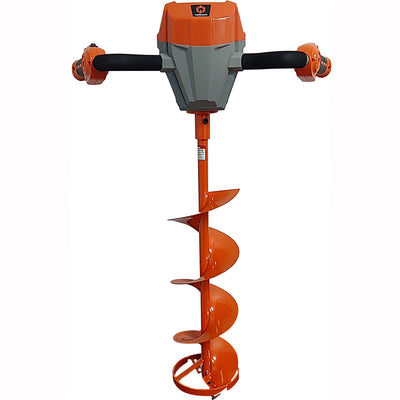Battery or Gas Leaf Blower: Which Is Right for You?
Spring has sprung again—and with it comes the tedious task of clearing our yards and driveways of leaves, grass clippings, and other debris. Who wants to spend hours raking and sweeping? Thankfully, power tools have simplified this chore, and the leaf blower has become a must-have tool in many households. This battery vs. gas leaf blower comparison will help you determine which is best for your needs.

Leaf Blower Types by Power Source
There are essentially three different options, like corded, cordless, and gas-powered. Corded is out immediately. Nobody wants to deal with that. The gas-powered blowers offer the highest power output but have disadvantages too. For example, they are so loud! The most recent innovation is the battery-powered blower which provides an impressive balance of power and convenience, with less noise and air pollution involved.
So, which one is right for you? Battery or a gas leaf blower? Let's dig in a little further.
Power
The work type and the volume of debris you need to move help determine the blower power required. If all you have are dry leaves and clippings lightly scattered on the ground, you might need less power than if you consistently deal with piles of damp debris.
When it comes to power, gas-powered blowers are known to be the best. However, with the latest technology and the introduction of lithium-ion batteries, battery-powered can deliver impressive performance.
Weight
Gas-powered blowers are heavier than cordless or battery-powered ones. A lightweight design is perfect if you plan to use the blower for extended periods. It is easier to carry, and it not only saves you from fatigue but also helps you reach higher places with ease.
Cost & Maintenance
Gas-powered blowers are typically more expensive than battery-powered ones, but they can also last long with proper maintenance. You must service them regularly, so the engine runs smoothly and efficiently. Battery-powered leaf blowers usually require less maintenance, aside from replacing their batteries occasionally.
Environmental Impact
Gas-powered blowers are known to produce more emissions, making them less eco-friendly than electric models. Battery-powered blowers are powerful and efficient and have a lesser environmental impact. They are much quieter and produce no emissions, unlike gas models.
Noise Level
Gas-powered blowers usually produce more noise compared to battery-powered ones. Make sure to use hearing protection while using either type of blower and obey the city regulations on noise levels. If you want low noise, consider using a battery-powered leaf blower. They are equipped with quieter motors, so you don't have to worry about disturbing your neighbors. Some brands even offer noise reduction technology.
Convenience
Battery-powered blowers offer convenience by being cable-free and easy to use. You don't need to worry about cords getting tangled or having to switch outlets in different areas of your yard. Furthermore, you can take them anywhere you need without worrying about limited reach. On the other hand, gas-powered ones require more maintenance and are less portable.
Weigh your options carefully to determine which suits your needs and budget best. Is it battery or gas leaf blower? You can quickly work out those annoying piles of leaves and grass clippings with the right leaf blower. Make your yard look neat in no time!






